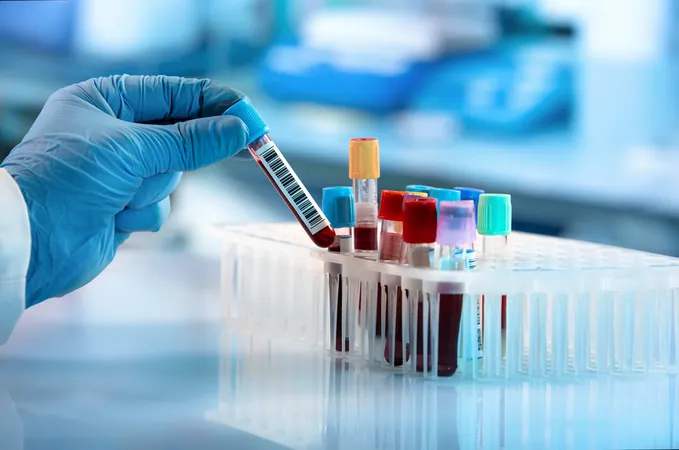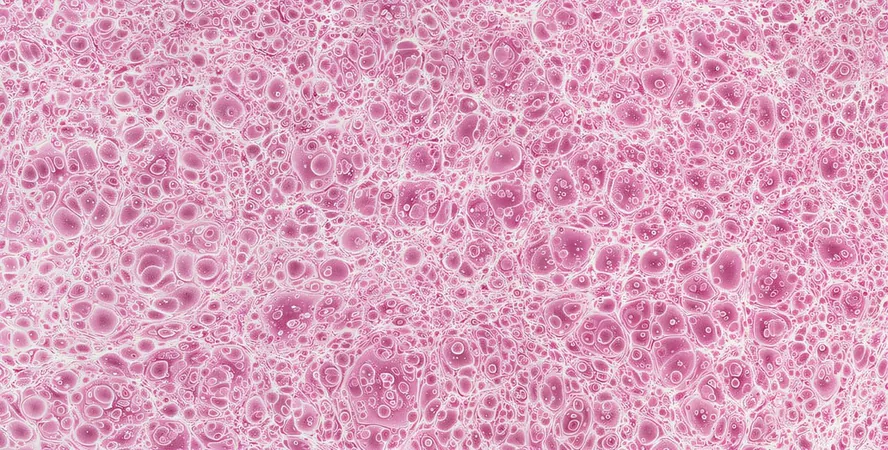
Breakthrough Study: Are We Any Closer to Identifying Biomarkers for Refractory Rheumatoid Arthritis?
2025-04-28
Author: Arjun
Classic Biomarkers Fall Short in Refractory RA
A groundbreaking study reveals that traditional biomarkers used to gauge rheumatoid arthritis (RA) severity may not be effective in pinpointing patients with active refractory disease. Published in the journal *Scientific Reports*, the researchers found that serum analysis could be less valuable for these patients than previously believed.
The Challenge of Treatment Resistance
While novel therapies have transformed RA treatment globally, many patients still struggle to find relief. Alarmingly, one in five affected individuals may require a third biologic disease-modifying antirheumatic drug. This persistence of symptoms has led experts to define a critical new concept: "refractory RA," which describes patients who do not respond to at least two lines of therapy.
Exploring the Unknown Causes
The exact mechanisms behind refractory RA remain elusive. Researchers suggest it's likely a complex interplay between the disease and various clinical factors. Despite identifying some clinical risk factors, there has been inadequate research into the molecular reasons that result in treatment resistance.
A Comprehensive Patient Study
The study involved 211 adult RA patients between 2019 and 2022, categorized into three groups: those with refractory active disease, those with non-refractory active disease, and a control group of healthy individuals. The investigators analyzed serum samples using advanced Luminex technology to measure 17 classical angiogenic and inflammatory markers.
Disappointing Results: No Clear Biomarker Profile
Surprisingly, the study uncovered minimal correlations between these markers and the different patient groups. There was no distinct cytokine profile for refractory active RA, highlighting a significant discrepancy: patients with refractory conditions exhibited a weak correlation with disease activity, unlike their non-refractory counterparts. Only three significant correlations were found within the active refractory group, akin to patients in remission.
The Need for Further Investigation
In stark contrast, non-refractory active RA patients displayed a rich correlation profile, suggesting a plethora of pro-inflammatory and pro-angiogenic factors at play. This investigation implies that current biomarkers lack the necessary power to differentiate refractory RA from its non-refractory form. Instead, the authors propose that there may be other undiscovered molecules contributing to the refractory state.
They recommend further research focused on synovial tissue analysis, which could be pivotal in unraveling the complexities of refractory RA and developing more targeted treatment strategies.



 Brasil (PT)
Brasil (PT)
 Canada (EN)
Canada (EN)
 Chile (ES)
Chile (ES)
 Česko (CS)
Česko (CS)
 대한민국 (KO)
대한민국 (KO)
 España (ES)
España (ES)
 France (FR)
France (FR)
 Hong Kong (EN)
Hong Kong (EN)
 Italia (IT)
Italia (IT)
 日本 (JA)
日本 (JA)
 Magyarország (HU)
Magyarország (HU)
 Norge (NO)
Norge (NO)
 Polska (PL)
Polska (PL)
 Schweiz (DE)
Schweiz (DE)
 Singapore (EN)
Singapore (EN)
 Sverige (SV)
Sverige (SV)
 Suomi (FI)
Suomi (FI)
 Türkiye (TR)
Türkiye (TR)
 الإمارات العربية المتحدة (AR)
الإمارات العربية المتحدة (AR)